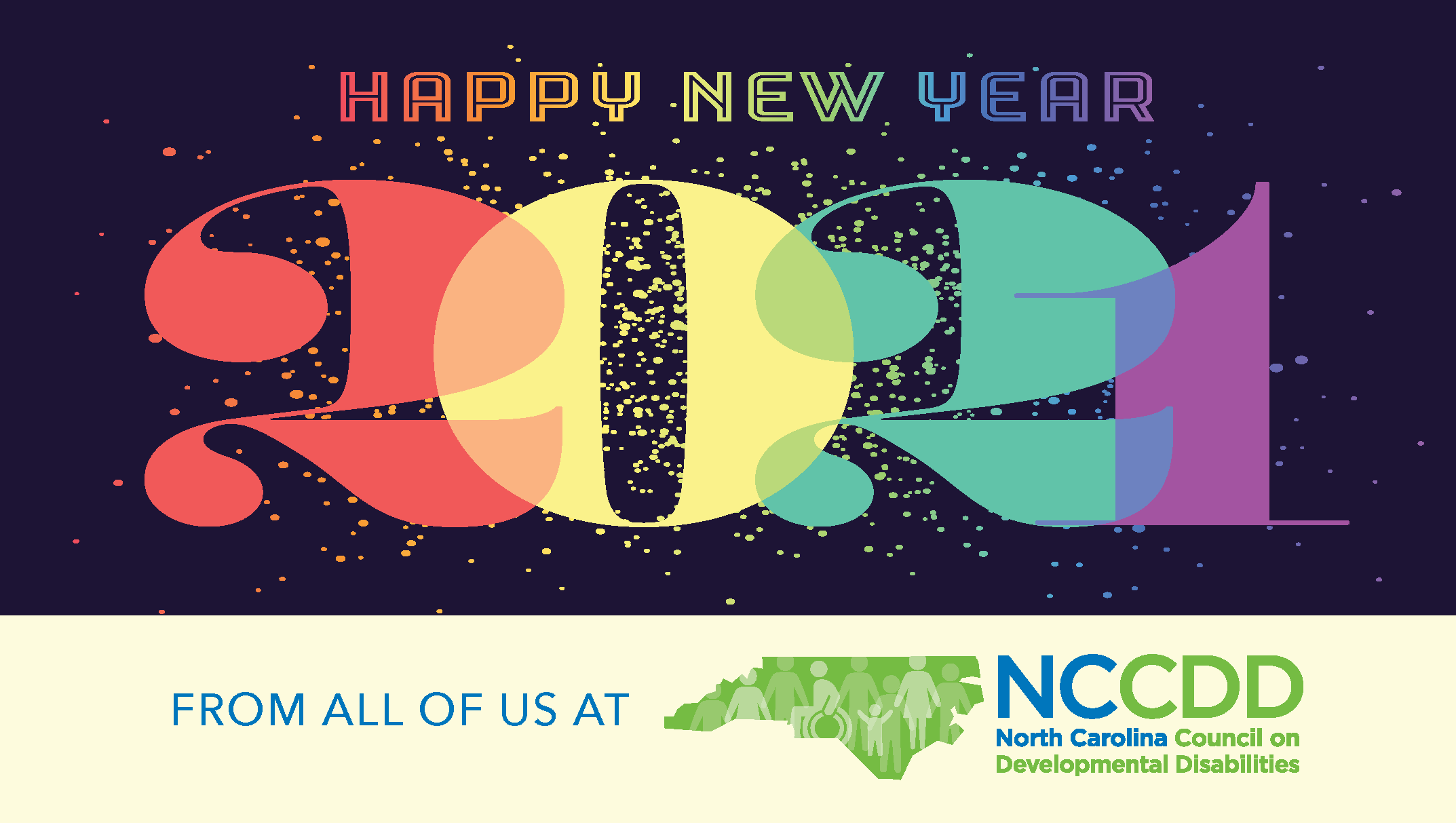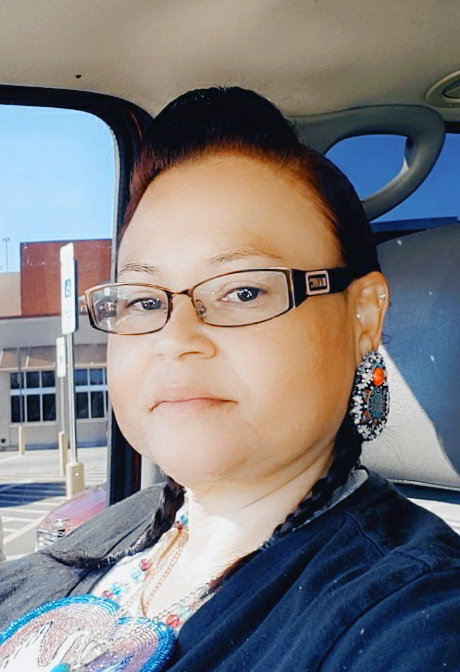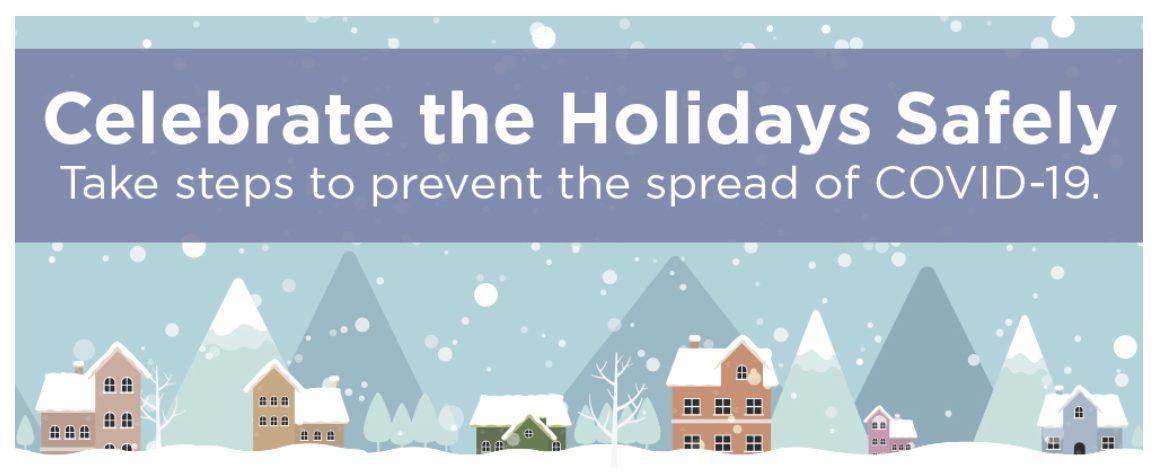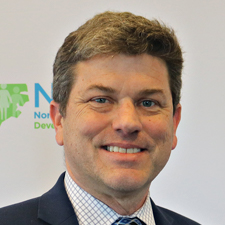December 2020 - Highlights and Hot Topics

Letter from the Executive Director
We finally see a light up ahead.
2020 has taught us a lot and reminded us what is important – community, family, unity, understanding and listening to one another. We saw the importance of advocacy in its truest, most raw form as people around the country had their voices heard at the polls during the state and national elections.
We learned that we must work together to support each other and lift up the disability community, people of color and all communities so we can thrive, move forward and succeed together.
This has been a heartbreaking year. We have lost loved ones, we have been separated from our families and friends, and we have had our lives disrupted in ways we would not have imagined when we celebrated the new year as 2020 began.
 Here’s our chance to begin anew in 2021 – with more understanding, kindness and appreciation for each other.
Here’s our chance to begin anew in 2021 – with more understanding, kindness and appreciation for each other.
As the vaccine rollout is underway, we need to remain cautious and vigilant. It is so important to minimize the chances to spread the virus to others. Be safe over the holidays. Wear a mask, stay more than six feet apart and get the vaccination as soon as it is available to you.
All of us at NCCDD – from the Council to staff – wish you a safe and happy holiday season. We look forward to a new beginning in 2021 with all of you across North Carolina.
Happy New Year!
Talley Wells, Executive Director
Public Policy Update as of December 9

FEDERAL
COVID Relief
Last week a bipartisan group of lawmakers unveiled a $908 billion coronavirus relief proposal which had some support in both the Senate and the House. However, Senate Majority Leader Mitch McConnell (R-KY) was concerned that the price tag of the bipartisan effort is too high and has instead re-circulated the $500 billion ‘skinny' relief bill previously voted down in the Senate. Democrats and Republicans remain at odds over how to resolve their differences about not only the amount of the relief, but what a package should include. Two major issues include whether to include liability reform to protect businesses and schools from lawsuits related to the coronavirus and how much funding should be included for state and local governments. With time running out, it is increasingly unlikely that Congress will be able to pass a relief bill before the December recess.
Budget
The federal government is currently operating under a Continuing Resolution (CR) – which allows continued pre-existing appropriations at the same levels as the previous fiscal year for a set amount of time – since an omnibus budget was not passed before the start of the federal fiscal year (October. The House and Senate continue to negotiate the budget and appropriations for the federal government in anticipation of the current Continuing Resolution expiring on Friday, December 11th, 2020. The House passed a set of appropriations bills totaling $1.3 trillion in July (H.R.7617). The Senate released their own proposed funding measures in early November, but have not formally introduced any legislation. Negotiations continue between the Democratic-led House and the Republican-led Senate with the goal of a large, omnibus bill to fund the government through the full Fiscal Year 2021 (ends September 30, 2021). However, the lack of agreement on the COVID relief package and some other funding suggest that another CR will be passed this week. A CR will most likely include short-term extensions for programs such as Money Follows the Person, Independence at Home, and Medicaid Spousal Impoverishment Protections.
Public Charge
Public charge means someone moving to the United States who could depend on the government for support, such a SSI, Medicaid, and housing assistance. The Public Charge rule allows the government to prohibit people from other countries who may be public charges to become United States citizens. In other words, the public charge rule can discriminate against people with disabilities who want to become United States citizens. Recently, the 9th U.S. Circuit Court of Appeals ruled to uphold a previous order blocking the public charge rule in several states across the country. So the rule has been blocked in some states, but remains in effect in several states, and its future remains uncertain.
STATE UPDATE
COVID
In response to the growing number of COVID cases in NC, Governor Roy Cooper and NCDHHS Secretary Mandy Cohen announced that North Carolina will begin a Modified Stay at Home Order after a rapid increase in North Carolina’s key COVID-19 trends. Executive Order 181, which requires people to stay at home between 10 p.m. and 5 a.m., takes effect Friday, December 11 and will be in place until at least January 8, 2021.The Order requires restaurants, bars, entertainment venues, personal care businesses and more to close at 10 pm. Travel to and from work; to obtain food, medical care, fuel or social services; or to take care of a family member is exempted.
As numbers increase and hospital beds are filling up, the issue of medical rationing becomes an important topic. Back in March 2020, North Carolina developed a “Scarce Resource Protocol”– a set of guidelines for making that decision in the event that resources run out. There were concerns about some of the language in the protocol which could result in discrimination against people with disabilities. Our partner agency, Disability Rights North Carolina (DRNC) filed a complaint with the US Office of Civil Rights (OCR) which is still pending. DRNC also recently sent a letter to the Department of Health and Human Services expressing concerns about the protocol. The Council will continue to educate/advocate to protect the rights of people with disabilities to have access to health care. The right to access to health care will also be critical when the vaccines begin to be distributed.
Legislative
The General Assembly will reconvene on January 13, 2021 to begin the work of the long session. Due to COVID, revenues are down and as described previously, there is uncertainty about federal stimulus dollars. Yet the priorities for people with I/DD remain and we will keep them in the forefront as the legislature works to develop a budget. Priorities include:
- Restoring Rural Operating Assistance Program funds which were reduced last session.
- Addressing the waitlist of over 14,000 people with I/DD. There was a ten-year plan in the budget that was never passed from the last long session. This should be re-visited.
- Expanding Innovations Waiver slots.
- Addressing workforce issues which includes increasing pay for direct support professionals in the community to align with wages paid in state developmental centers.
State Policy
Medicaid Transformation continues to move forward. The Standard Plan is scheduled to launch on July 1, 2021. The RFA for the Tailored Plan has been released. The current LME/MCOs, the only entities who are allowed to respond to this RFA, are working on their applications which are due February 2, 2021. The Tailored Plan is scheduled to launch on July 1, 2022.
On Dec 1, the North Carolina Department of Health and Human Services today announced the launch of a new Beneficiary Portal, on the NC Medicaid website. The portal will serve as a centralized information resource for those receiving or looking to apply for Medicaid benefits. It also offers information about Medicaid Managed Care, set to launch July 1, 2021. The portal replaces the beneficiaries page and is organized in a more user-friendly way.
The Olmstead Plan Stakeholder Advisory (OPSA) group was initiated by the Department of Health and Human Services to develop an Olmstead Plan that ensures the right of all people with disabilities to choose to live life fully included in the community. There are several committees currently working: Housing, Employment, Community Capacity Building, Transition to Community, Children/Youth/Families, Workforce Development, Older Adults, and Quality Assurance/Quality of Life. The Council is represented on the committees and provides input to make sure our priorities are included in the plan. For more information about the committees, which are open to all, visit the website: https://www.ncdhhs.gov/about/department-initiatives/nc-olmstead
New Member Spotlight: Laura Richardson

The Haliwa-Saponi is a Native American people recognized as a tribe by the state of North Carolina. They are located in the Northeastern Piedmont. Laura Richardson is an enrolled member of the tribe and was appointed to the North Carolina Council on Developmental Disabilities this past fall by Governor Roy Cooper.
A mother and strong advocate for her 23-year-old son who has cerebral palsy, Richardson is originally from Hollister, NC but now resides in Oxford. She is employed by 3HC Home Health and travels to patients’ homes to assist them with their health challenges outside of the hospital. Richardson received her LPN from Halifax Community College.
Richardson explains her biggest challenge in advocating for her son and others with disabilities is the general public needs to understand all people with disabilities and not stereotype them. “I have always taught my son he can do anything in life, we just have to find his way of doing it. Can’t is not a word we use,” said Richardson.
Her strong work ethic and attitude has its roots in her family. “I don’t give up. My Dad always taught me if you’re going to take a job, show up and do it right the first time. If not, don’t show up at all. It’s your name you are showcasing.”
Richardson, who is CPR certified, is also a skilled phlebotomist and is board certified in venipuncture blood draw and intravenous therapy. In her free time, Richardson enjoys making Native American dream catchers and creates her own beadwork and regalia emblems for her and her two sons.
Happy Holidays During This Covid Season
 Of all the gifts this season, the most “unwanted” gift is Covid-19. Please exercise caution as you gather for the holidays this month. Remember the three Ws:
Of all the gifts this season, the most “unwanted” gift is Covid-19. Please exercise caution as you gather for the holidays this month. Remember the three Ws:
- WEAR a face covering or mask when in public, around high-risk people, when caring for others, or when around those not in your household.
- WAIT at least 6 feet apart from others when outside your home or in public or enclosed spaces.
- WASH your hands often and regularly for at least 20 seconds.
For up-to-date North Carolina Covid information, please be sure to visit the Council’s Covid-19 Resources page.
For even more details on how to celebrate the holidays safely, visit from the NC Department of Health and Human Services website.

